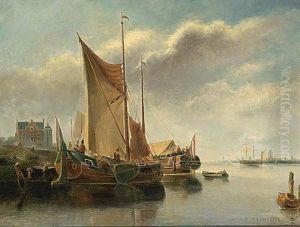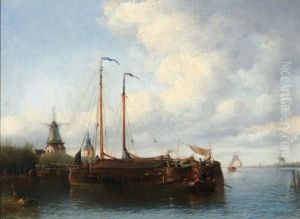Willem Lodewijk Andrea Paintings
Willem Lodewijk Andrea was a Dutch art historian, museum curator, and educator born on July 16, 1864, in Zwolle, the Netherlands. His work primarily focused on the history of Dutch art, and he played a significant role in the cultural landscape of the Netherlands during the late 19th and early 20th centuries.
Andrea's education and early career were deeply rooted in the study of art history and the cultural heritage of the Netherlands. His academic pursuits led him to develop a profound knowledge of Dutch art, which he later applied in various professional capacities. Andrea's contributions to the field included his role in the preservation of historical artifacts and the curation of art collections.
Throughout his career, Andrea worked in the museum sector, where he was involved in managing collections, organizing exhibitions, and promoting the understanding and appreciation of Dutch art among the public. His expertise also extended to teaching, as he educated students on the importance of art history and cultural preservation.
In addition to his professional endeavors, Andrea was a prolific writer. He authored numerous articles and books on Dutch art history, contributing valuable scholarship to the field. His work helped to document and analyze the evolution of Dutch artistic expression and its significance in the broader context of European art history.
Andrea's dedication to his field earned him recognition and respect from his peers, and his legacy in the area of Dutch art history remains influential. He passed away on October 10, 1920, leaving behind a rich legacy of scholarship and a strengthened framework for the study and appreciation of Dutch cultural heritage.

